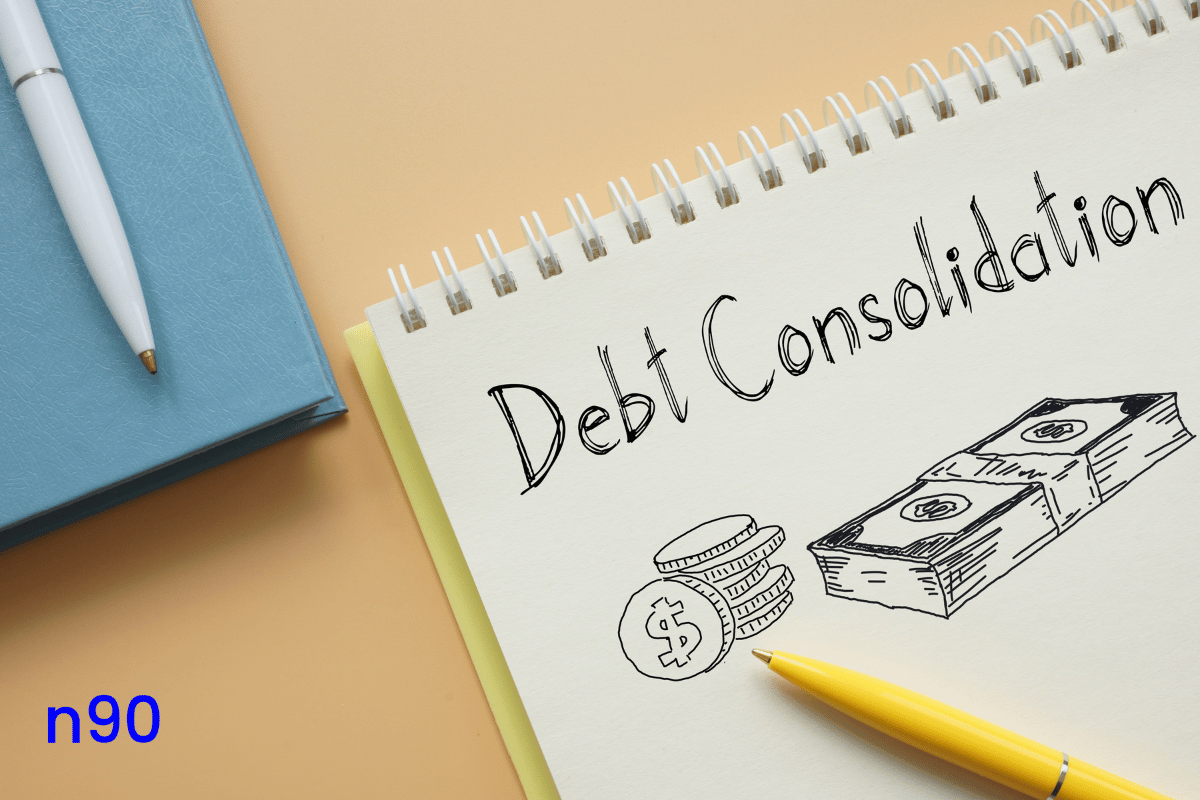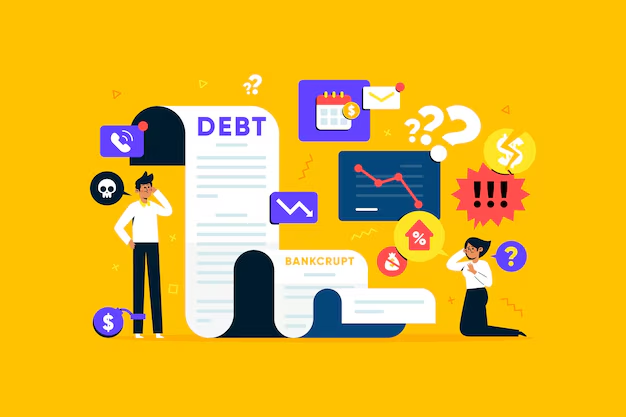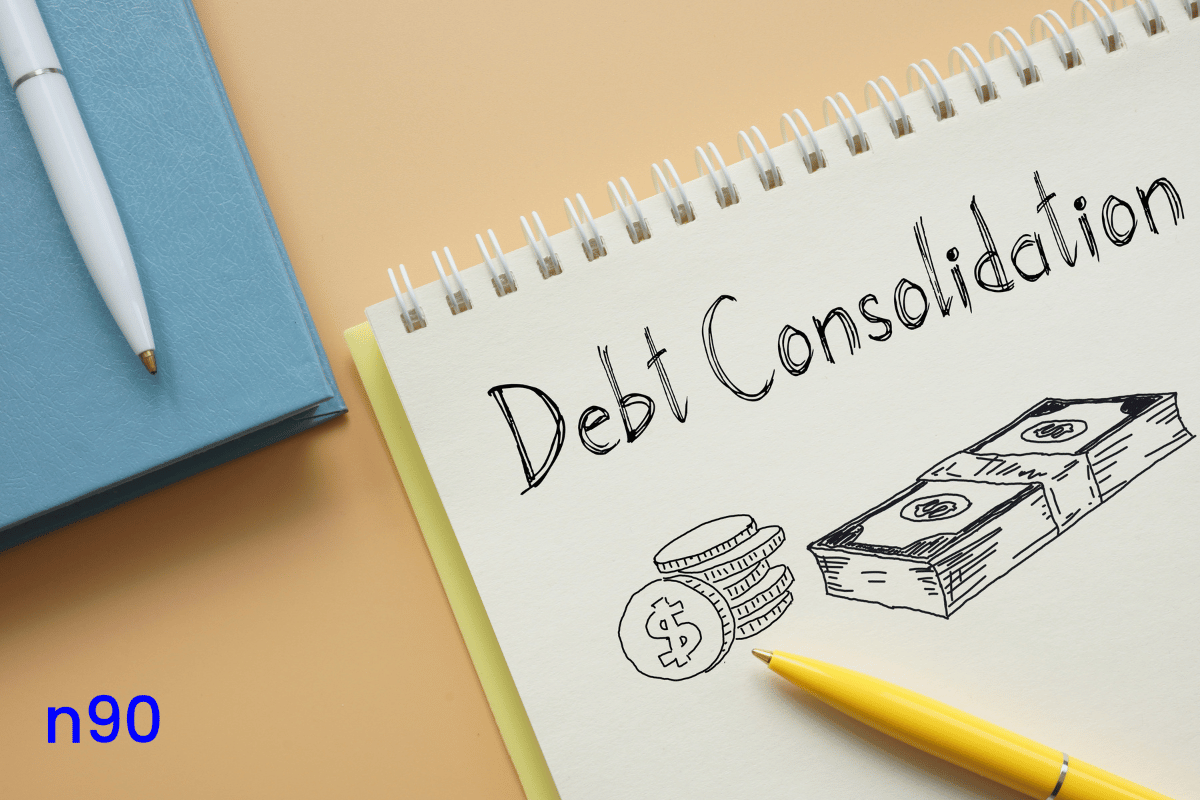Feeling buried under bills? It's time to get your financial life back - consider debt consolidation!
Juggling multiple debts in the Philippines can be stressful and confusing, but that’s where debt consolidation comes in. It involves combining several debts into one loan and offers a possible solution. But is it the right choice for you?
Debt consolidation in the Philippines has become an increasingly popular option for individuals looking to streamline their finances and reduce the burden of multiple debt payments.
This approach can offer significant benefits, such as simplifying monthly payments and lowering overall interest costs. However, it also comes with potential drawbacks that borrowers like you should carefully consider.
In this article, we will not only explore the pros and cons of debt consolidation in the Philippines and help you decide whether this financial strategy is the right option for your situation, but we will also take a deep dive into what debt consolidation is all about.
But before we dive into the nitty-gritty, let's first understand who this strategy is best suited for.
What is Debt Consolidation in The Philippines & Who is it For?

Debt consolidation in the Philippines is a financial strategy that involves combining multiple debts into a single loan, often with a lower interest rate and more manageable repayment terms.
This process is designed to simplify debt management by reducing the number of monthly payments and potentially lowering the overall interest paid. By consolidating debts such as credit card balances, personal loans, and other liabilities, borrowers can streamline their finances and work towards becoming debt-free more efficiently.
Debt consolidation particularly benefits those struggling with high interest rates and multiple due dates, providing a more structured and affordable repayment plan.
Wondering how to actually go about consolidating your debt? Let's break it down step-by-step.
How Does Debt Consolidation In The Philippines Work
Struggling with multiple debts? Debt consolidation in the Philippines simplifies things! It involves securing a single loan to pay off your existing debts. Think of it as merging credit cards, personal loans, or even bills into one manageable payment.
Here's a breakdown of the entire process of debt consolidation in the Philippines -
1. Gather Information: List all your outstanding debts, including credit card balances, personal loans, and any store financing. Note the interest rates and minimum payments for each.
2. Find a Consolidation Loan: Explore options like personal loans from banks, credit card balance transfer offers, or debt consolidation loans from specific lenders.
3. Apply and Get Approved: Submit your application to your chosen lender, providing proof of income and creditworthiness. Aim for a loan with a lower interest rate than your current debts.
4. Pay off Existing Debts: Once approved, the consolidation loan will be used to pay off your existing debts directly to your creditors.
5. Make One Monthly Payment: You'll now have a single monthly payment to manage for the consolidation loan, simplifying your budgeting process.
Now, let's take a closer look at both sides of the coin.
Also Read: Understanding Collateral Loans: Types, Pros, and Cons
Advantages & Disadvantages of Debt Consolidation in The Philippines
Feeling buried under a mountain of debt in the Philippines? Debt consolidation might seem like a magic solution, but it's not without its drawbacks. It is a financial strategy that can simplify repayment, potentially lower interest rates, and help you regain control of your finances; however, it also comes with certain risks and downsides that must be carefully evaluated.
Hence, this section of the article explores the various advantages and disadvantages of debt consolidation in the Philippines, helping you decide if it's the right path to financial freedom for you or not.
Here’s a look at some of the pros and cons of debt consolidation in the Philippines -
Advantages
1. Simplified Repayment
Consolidating multiple debts into one loan means you only have to make one monthly payment, making it easier to manage your finances and reducing the risk of missing payments.
2. Lower Interest Rates
Debt consolidation loans often have lower interest rates than credit cards and other high-interest debts, potentially reducing the overall cost of debt.
3. Fixed Repayment Schedule
Consolidation loans typically have fixed repayment terms, providing a clear timeline for when debt will be fully paid off, which can help you with your financial planning.
4. Improved Credit Score
Debt consolidation can positively impact your credit score over time by reducing your credit utilization ratio and ensuring timely payments.
5. Stress Reduction
Managing a single loan instead of multiple debts can reduce the stress and anxiety of juggling various due dates and payment amounts.
Disadvantages
1. Risk of Higher Costs
While monthly payments might be lower, extending the loan term can result in paying more in interest over the life of the loan.
2. Additional Fees and Costs
Some debt consolidation loans have origination fees, closing costs, or other charges that can increase the overall cost incurred by you.
3. Collateral Requirement
Some debt consolidation loans require collateral, such as a home or car, putting your assets at risk if you fail to make payments.
4. Temporary Credit Impact
Applying for a new loan involves a hard inquiry on your credit report, which can temporarily lower your credit score.
5. Debt Recurrence
Without disciplined financial habits, you risk accumulating new debt while paying off the consolidated loan, which will only add to your existing financial problems.
Alright, so when is debt consolidation in the Philippines really worth considering?
Also Read: Choosing the Right Business Loan for Your Company's Growth
When Should You Consider Opting For Debt Consolidation in the Philippines?
Are you feeling overwhelmed by your multiple debts in the Philippines? Debt consolidation, merging them all into one loan, might be the best solution.
Although Debt consolidation in the Philippines has its fair share of drawbacks, certain situations arise where this could be the only viable option available.
Here's a quick guide to help you decide when debt consolidation might be your financial hero in the Philippines -
1. High-Interest Debt
Multiple High-Interest Loans: If you have several high-interest debts, such as credit card balances or personal loans, consolidating them into a single loan with a lower interest rate can save you money on interest payments.
2. Difficulty Managing Multiple Payments
Payment Overwhelm: If you are struggling to keep track of multiple debt payments each month, consolidating them into a single loan can simplify your repayment process and reduce the risk of missed or late payments.
3. Stable Income
Having a steady income ensures that you can commit to a fixed repayment schedule, which is crucial for maintaining timely payments on your consolidated loan.
4. Good Credit Score
Creditworthiness: A good credit score can qualify you for lower interest rates on a debt consolidation loan. If your credit score has improved since you took out your original debts, consolidation could be particularly beneficial.
5. Sufficient Collateral
Asset Availability: If you're considering a secured debt consolidation loan, having valuable assets like a home or car to use as collateral can help you obtain favorable loan terms.
6. Long-Term Savings
Cost Analysis: Calculate the total cost of your current debts versus the cost of a consolidation loan. If consolidation offers significant long-term savings, it may be a worthwhile option.
7. Commitment to Financial Discipline
Budgeting and Spending: Consolidation is most effective if you are committed to managing your finances responsibly, including sticking to a budget and avoiding new debts while paying off the consolidated loan.
8. Need for Financial Relief
If managing multiple debts is causing you significant stress, anxiety, and discomfort, consolidating your debts can provide psychological relief by simplifying your financial obligations.
9. Early Repayment Penalties
Check if your current loans have early repayment penalties. If not, consolidating these loans into one may be more advantageous.
But wait, you might wonder if you actually qualify for a debt consolidation loan. Let’s find out.
Time is money! Secure the financing your Philippine SME needs with n90's fast and tailored loans. Get pre-approved today and unlock new opportunities. Visit Now!
Eligibility Criteria For Debt Consolidation in the Philippines

To qualify for debt consolidation in the Philippines, you must meet specific eligibility criteria set by lenders. These criteria typically include you having a stable income, a good credit score, and sufficient collateral for secured loans. Moreover, lenders may also require proof of identity, residency, and a detailed account of your debts.
Understanding these requirements will help you prepare your applications effectively, thereby increasing your chances of securing a debt consolidation in the Philippines to manage and streamline your existing financial obligations.
Here, take a look at all the important eligibility criteria that you must meet to get debt consolidation in the Philippines -
1. Minimum Income: Lenders typically have a minimum monthly income requirement, often around PHP 15k for employed and PHP 30k for self-employed individuals.
2. Credit Score: A good to excellent credit score of above 700 increases your chances of approval and potentially qualifies you for lower interest rates.
3. Debt-to-Income Ratio (DTI): A healthy DTI is crucial. Aim for a DTI below 30% to improve your chances of approval.
4. Employment Status: Most lenders prefer borrowers with stable employment and a verifiable income source.
5. Existing Debt: The type and amount of debt you want to consolidate will be considered, as some lenders might have limitations on the types of debt they allow for consolidation.
6. Documentation: Be prepared to submit proof of income, such as payslips or ITR for self-employed people, valid government IDs, and statements of your existing debts.
7. Age Requirement: Some lenders might have minimum and maximum age requirements. Typically, lenders prefer the borrower to be between 21 and 65 years old.
8. Collateral: While not always required, some lenders might offer better rates for secured loans with collateral, such as property, vehicle, etc.
9. Loan Purpose: Transparency about how you'll use the loan funds can be beneficial during the application process.
Great, now that you know if you're eligible, let’s explore where you can get these loans and the best options available.
Also Read: Financial Planning for Small Businesses: Navigating Debt and Cash Flow Management
Debt Consolidation in The Philippines - Best Options, Top Service Providers & Alternate Methods
Debt consolidation has become a significant financial service in the Philippines, catering to individuals seeking to manage multiple debts more effectively. So in this section of the article, we'll unveil the different consolidation options, such as personal loans and credit card transfers, and who the top service providers are—from established banks to online lenders.
But that’s not all; we'll also explore alternative methods like debt negotiation plans if consolidation isn't the perfect fit for you. By the end of this guide, you'll be empowered to make informed decisions and choose the best path toward financial freedom in the Philippines.
Best Options To Utilize For Debt Consolidation in The Philippines
Debt consolidation in the Philippines isn't a one-size-fits-all solution. To start with, here's a look at the different options to utilize in your debt consolidation endeavor:
1. Personal Loans
Banks and online lenders offer personal loans specifically designed for debt consolidation. Typically unsecured, they offer competitive interest rates if you have good credit.
2. Credit Card Balance Transfers
If you have a credit card with a low introductory 0% APR (Annual Percentage Rate) on balance transfers, you can strategically move your high-interest credit card balances to this card. Remember, the 0% APR period is usually limited, so ensure you have a plan to pay off the transferred balance before the regular interest rate kicks in.
3. Home Equity Loan/Line of Credit
For homeowners with equity in their property, a home equity loan or line of credit can offer lower interest rates compared to other options. However, this is a secured loan, meaning your home is at risk if you fail to repay.
4. Debt Management Plan (DMP)
Offered by credit counseling agencies, a DMP involves consolidating debts into a single payment managed by the agency. The agency negotiates with creditors to lower interest rates and create a manageable repayment plan. While not technically a loan itself, a DMP can be a valuable tool for managing and potentially reducing debt.
Top Avenues Providing Debt Consolidation in The Philippines
Now that you understand the different debt consolidation options available, let us explore some of the top avenues that provide debt consolidation services in the Philippines.
Here is a brief idea of who the key players are -
1. Traditional Banks
Established banks like BPI, Metrobank, and BDO offer personal loans specifically designed for debt consolidation. They often have competitive interest rates, especially for individuals with good credit scores. However, the application process might be stricter than that of other lenders.
2. Online Lenders
Platforms like Blend.ph, Tala, Digido and Cashwagon offer convenient online applications and potentially fast approvals for debt consolidation loans. While interest rates can be higher compared to banks, online lenders can be a good option for those with lower credit scores or needing quick access to funds.
3. Debt Management Companies
Non-profit organizations like the Credit Counselling and Debt Management Foundation (CCAP) offer DMPs. They help you consolidate your debts, negotiate with creditors for lower interest rates, and create a manageable repayment plan. There might be enrollment fees associated with DMPs.
If debt consolidation doesn’t seem like the perfect fit for your situation, don’t worry—there are alternatives.
Also Read: Types of Business Loans in the Philippines
Alternate Methods To Debt Consolidation in The Philippines
While debt consolidation can be a powerful tool, it's not the only solution for managing multiple debts in the Philippines.
Here are some effective alternative methods to consider -
1. Debt Negotiation: Contact your creditors directly and attempt to negotiate lower interest rates or extended repayment terms. Explain your financial situation and commitment to repayment.
2. Debt Management Plan (DMP): Enroll in a DMP with a credit counseling agency. They'll consolidate your debts into one payment they manage on your behalf, negotiate with creditors for reduced interest rates, and create a personalized repayment plan.
3. Avalanche Method: First, focus on paying off the debt with the highest interest rate while making minimum payments on your other debts. This method prioritizes saving money on interest charges in the long run.
4. Snowball Method: Tackle the debt with the smallest balance first, regardless of interest rate. This can provide a sense of accomplishment early on and motivate you to keep going.
5. Increase Income: Explore ways to increase your income, like taking on a side hustle or negotiating a raise. This extra income can be used to pay down your debts faster.
6. Reduce Expenses: Carefully analyze your budget and identify areas where you can cut back on spending. Freeing up additional funds can accelerate debt repayment.
So, is debt consolidation the right move for you? Let's wrap up with some final thoughts.
Conclusion - Is Debt Consolidation Right For You?
Debt consolidation in the Philippines can be a valuable tool for simplifying and potentially reducing your debt burdens, but it's not a one-size-fits-all solution. Carefully weigh the pros and cons, assess your financial situation, and explore alternative methods like debt negotiation or budget planning to see which one suits your needs and which doesn’t.
If you have good credit and can qualify for a lower-interest-rate loan, debt consolidation can be a strategic step towards financial freedom. However, responsible financial management is crucial.
It is always worth remembering that debt consolidation is only a tool. Its success relies on your commitment to sticking to a budget and avoiding further debt. Ultimately, the right choice depends on your unique circumstances.
So carefully considering all the options, make an informed decision and take control of your financial future with complete responsibility.
Frequently Asked Questions (FAQs)
1. What is the disadvantage of debt consolidation?
A major downside of debt consolidation is potentially ending up with a higher interest rate loan. You might not qualify for a lower rate, and rolling debts into one loan can extend repayment, leading to more interest paid overall.
2. What are 4 things debt consolidation can do?
Debt consolidation can simplify your finances by merging multiple debts into one manageable payment. This can potentially save you money if you qualify for a lower-interest-rate loan. It also frees you from juggling due dates and creditors, reducing stress.
3. Does debt consolidation ruin your credit score?
Debt consolidation itself shouldn't ruin your credit score. In fact, it can potentially improve it in the long run if you manage your payments responsibly. However, a hard inquiry during the application process can cause a temporary dip in your score.
4. How much debt is too much to consolidate?
There's no strict debt amount that disqualifies debt consolidation. It depends on your situation. If you can't comfortably afford the new monthly payment or the consolidation loan has a higher interest rate, it might not be a good idea, regardless of the total debt amount.













